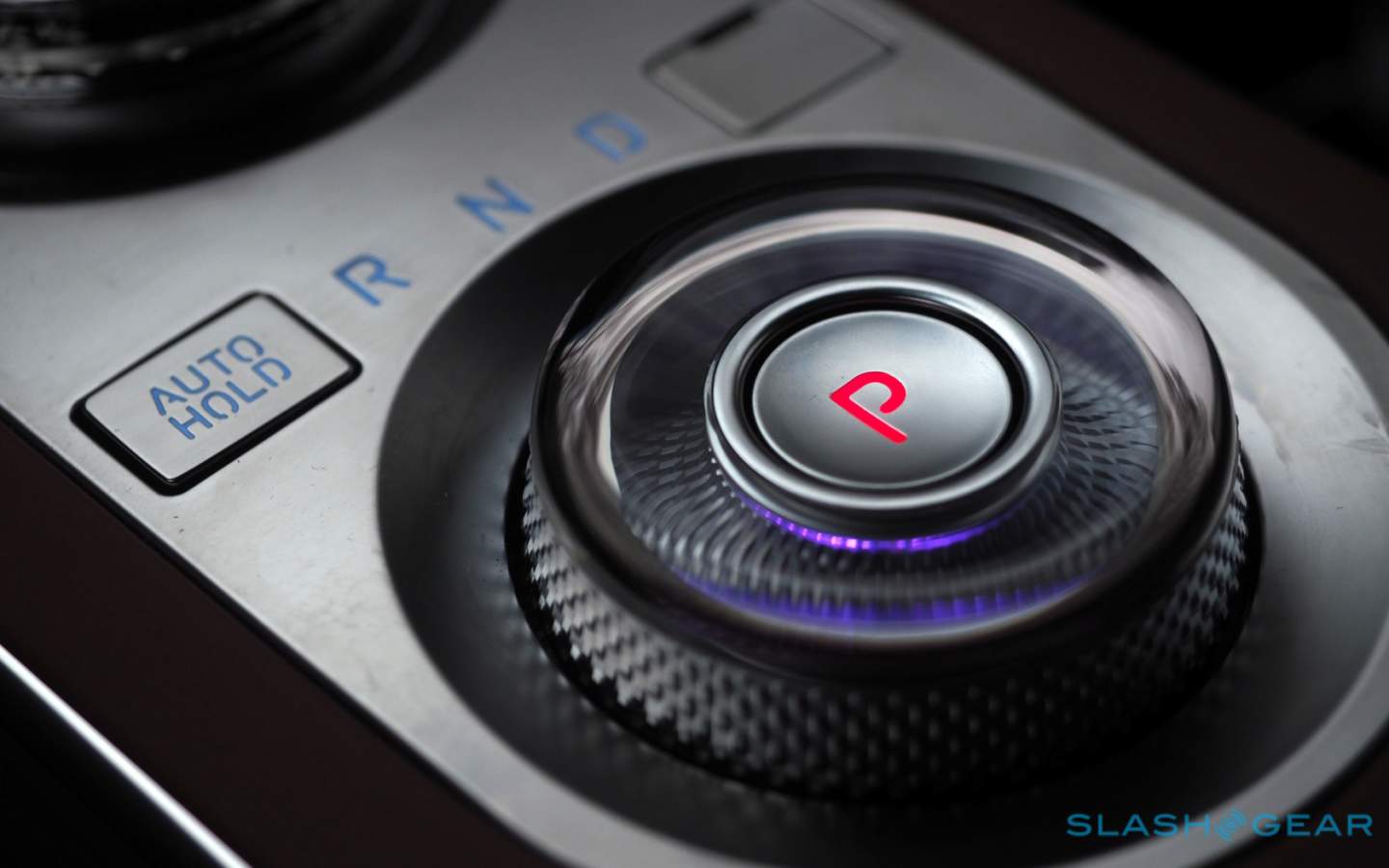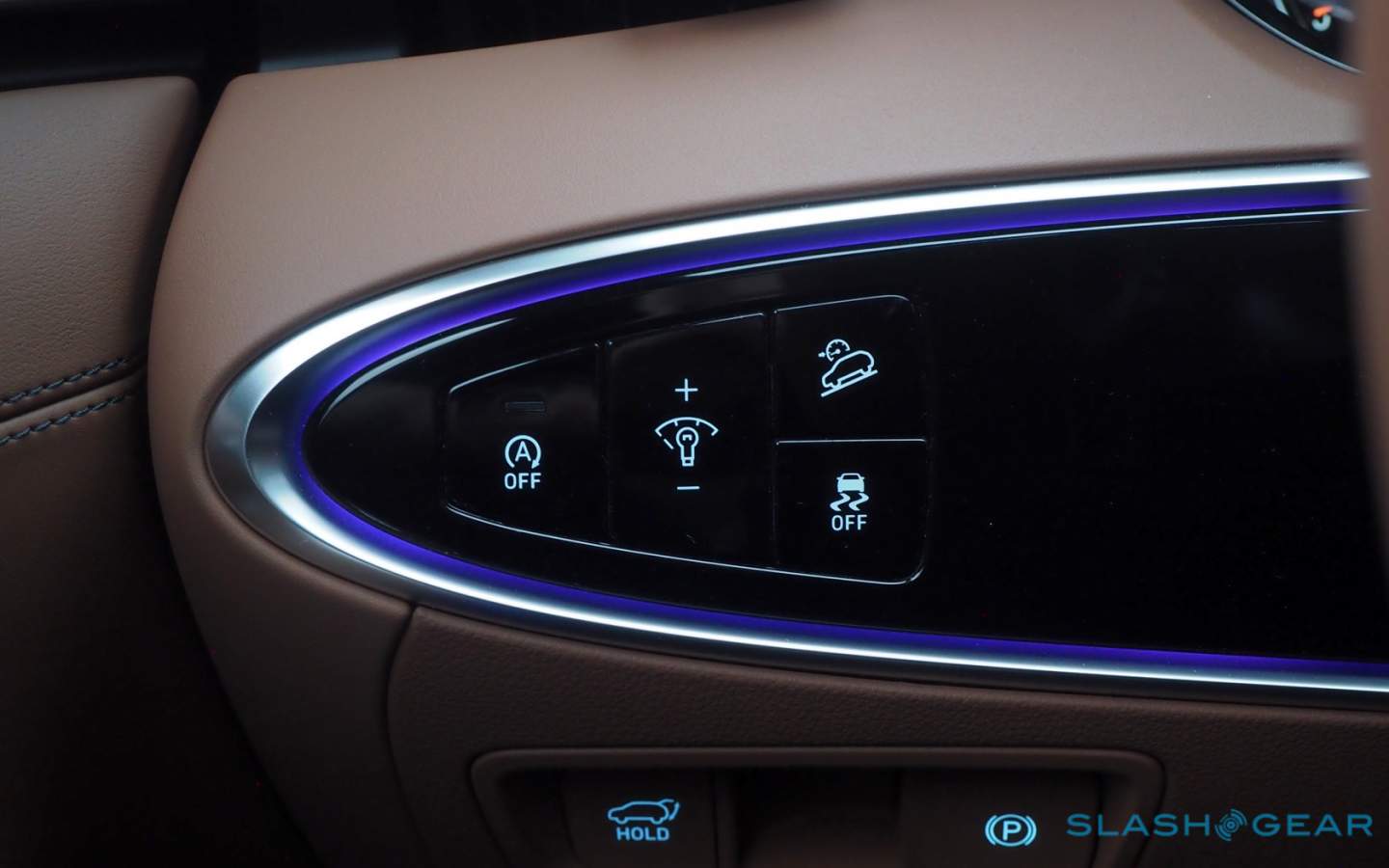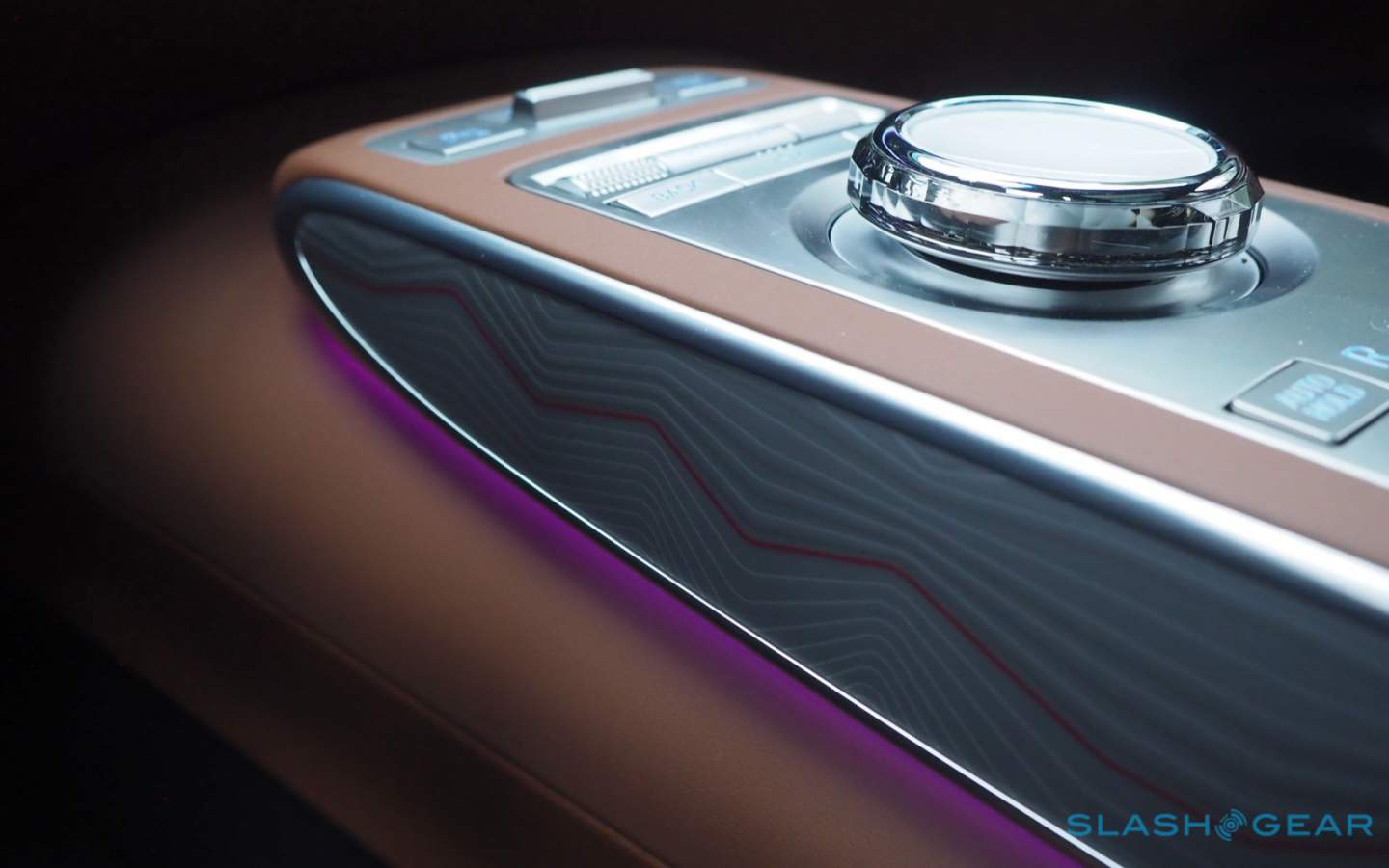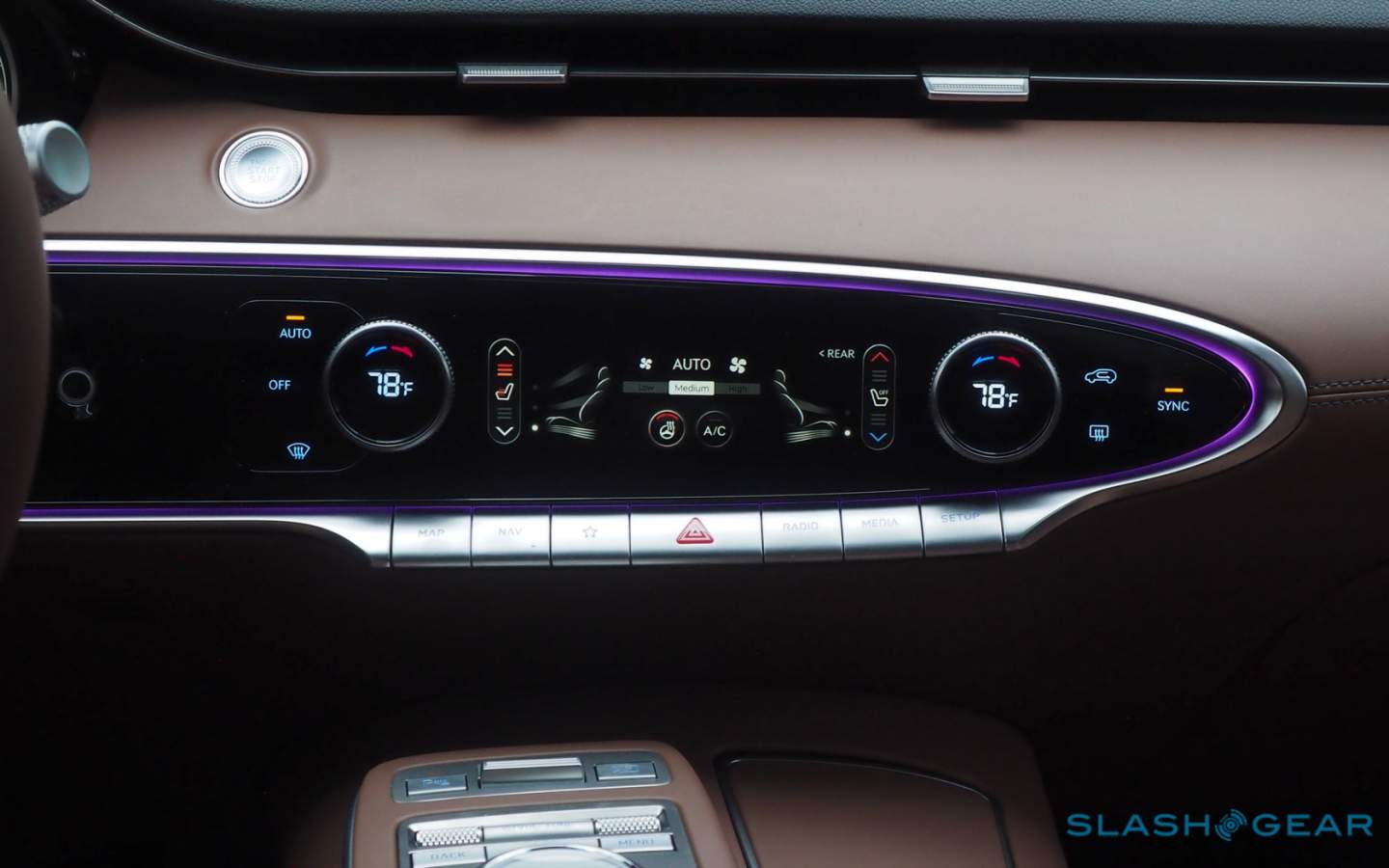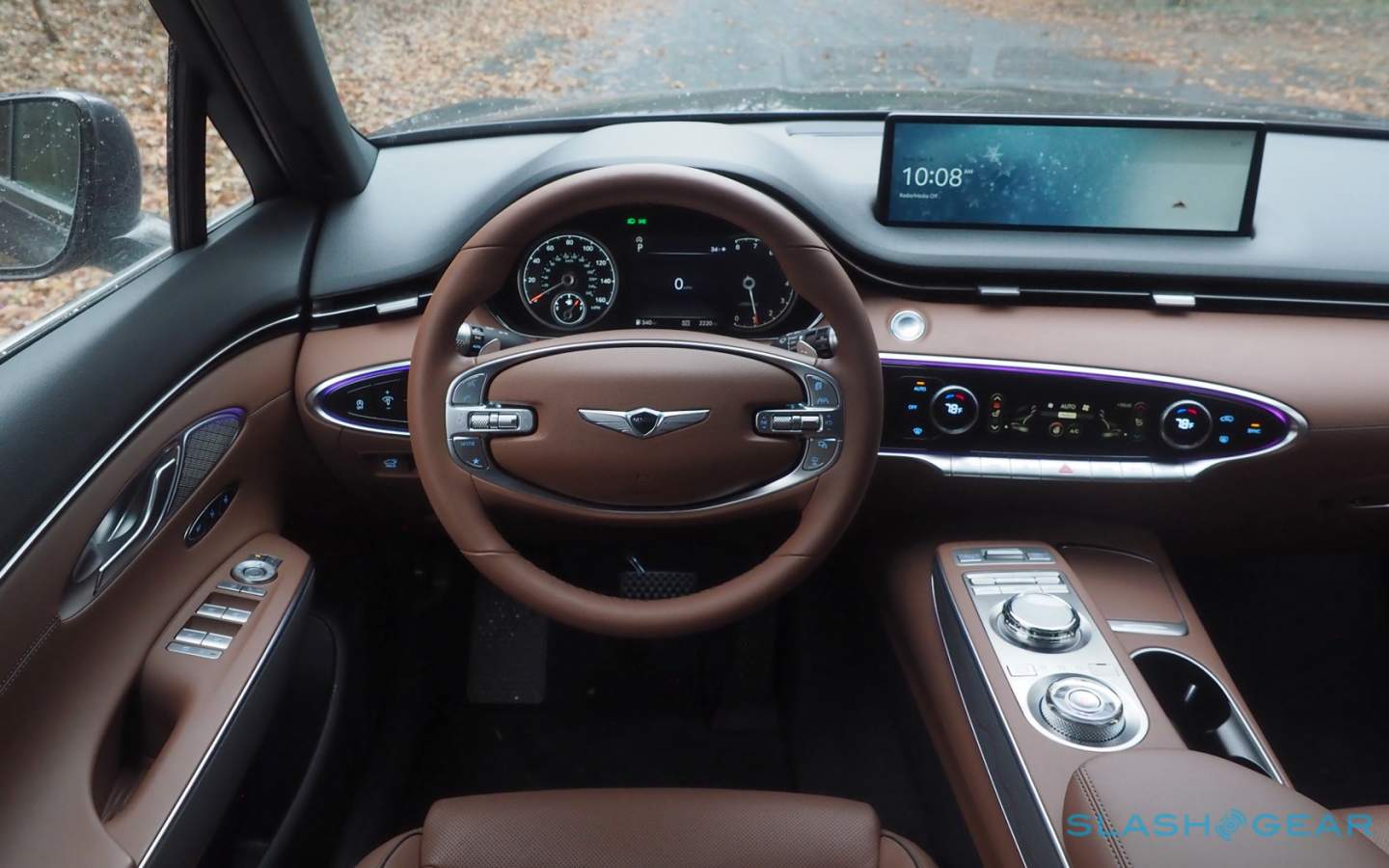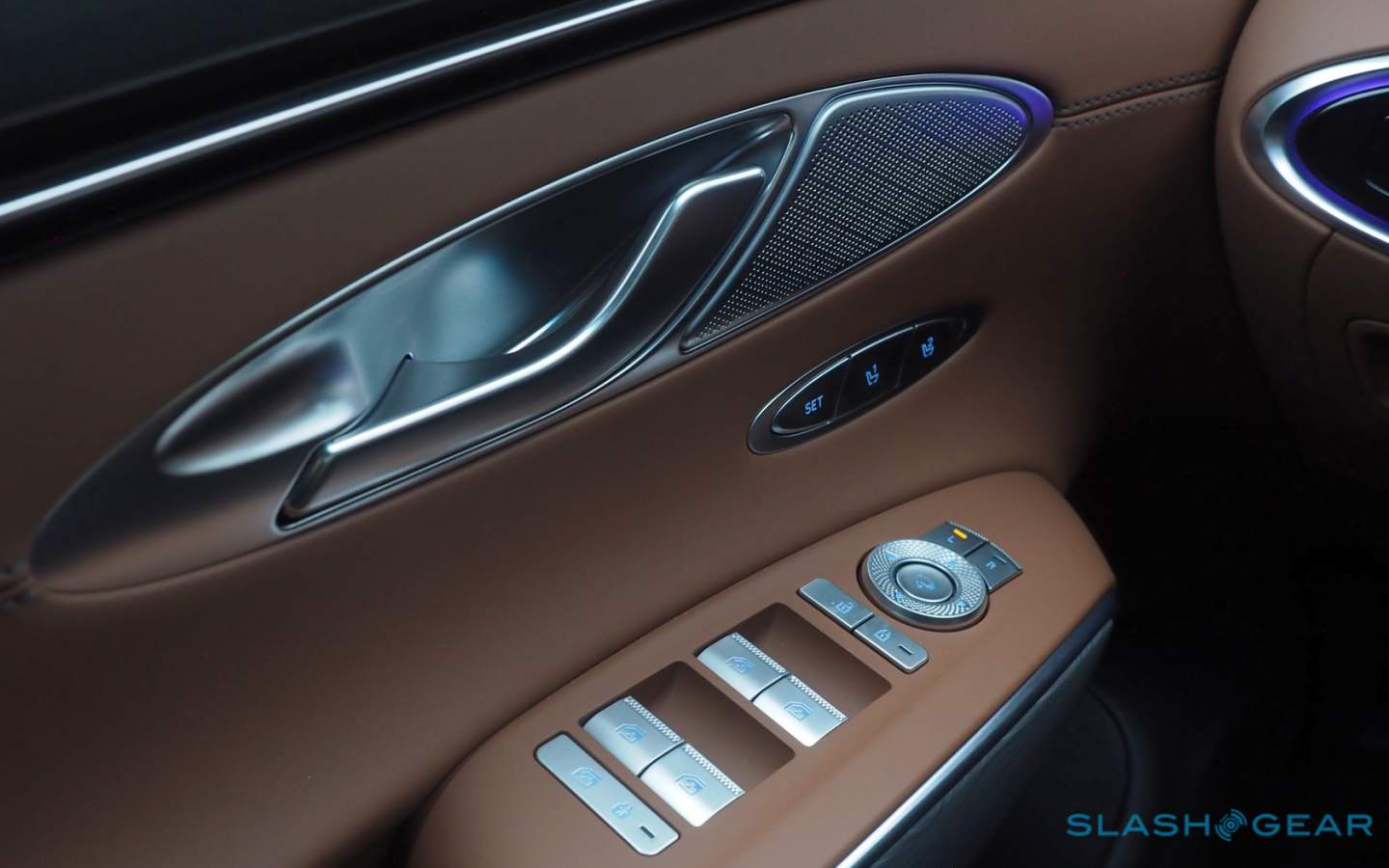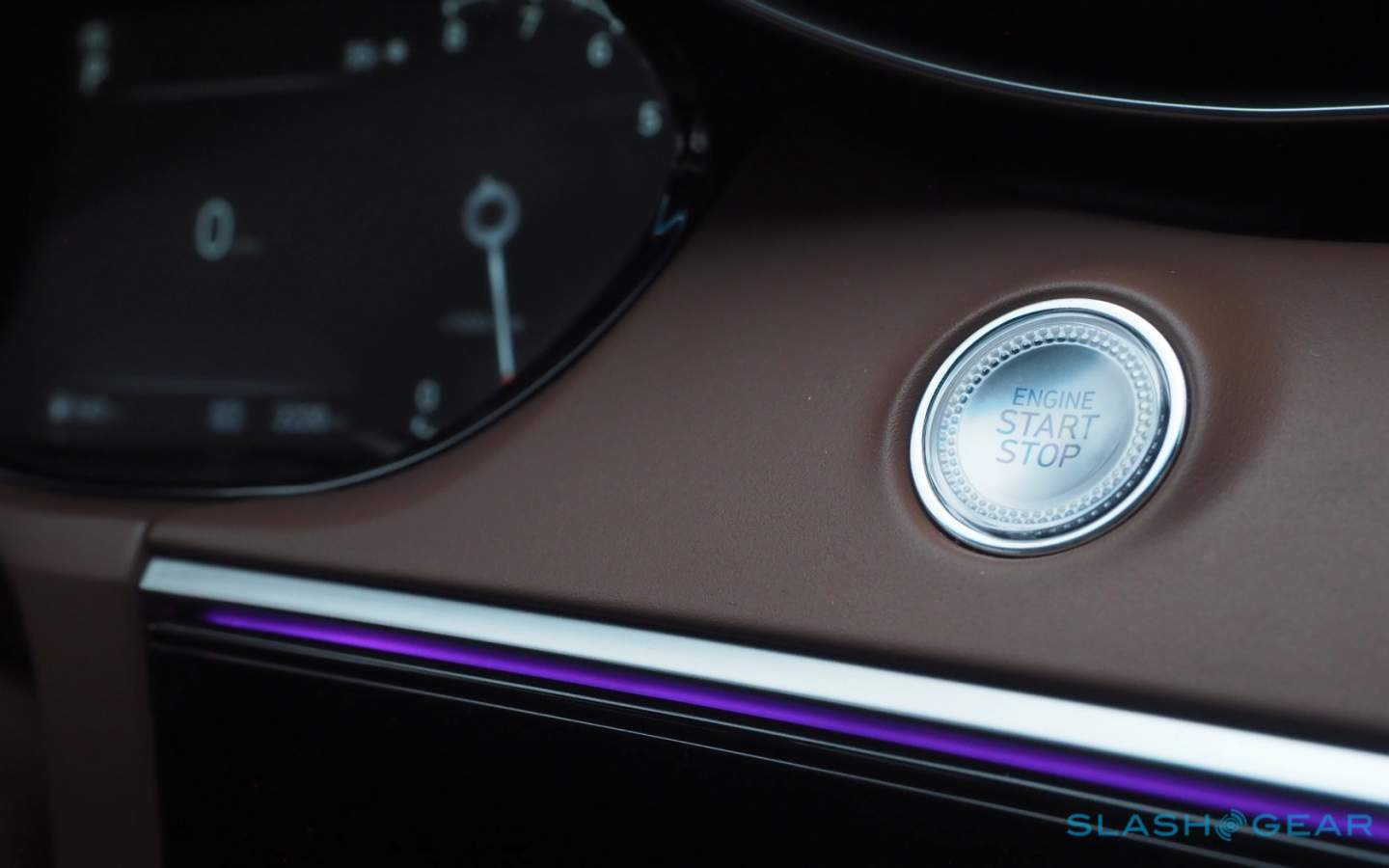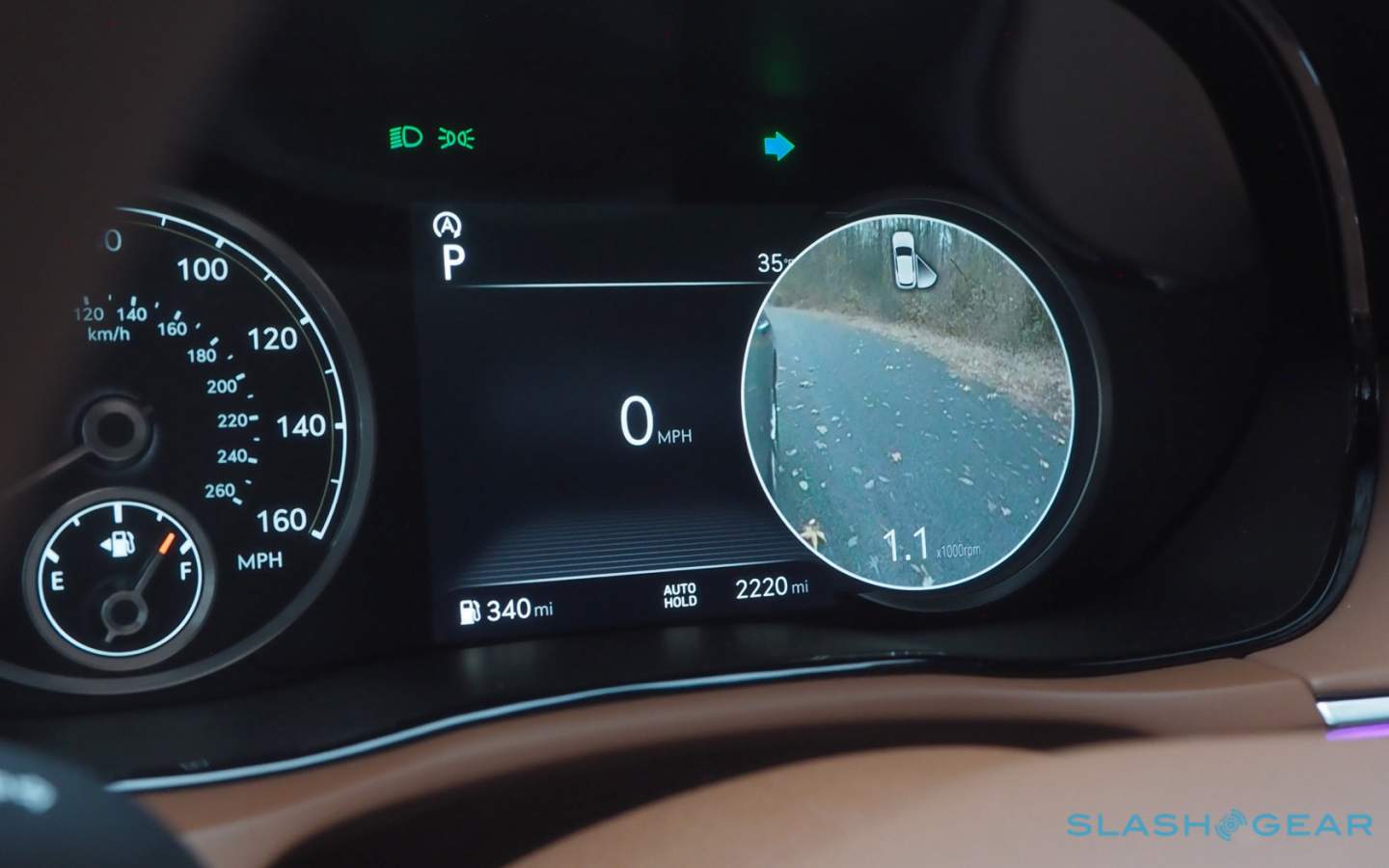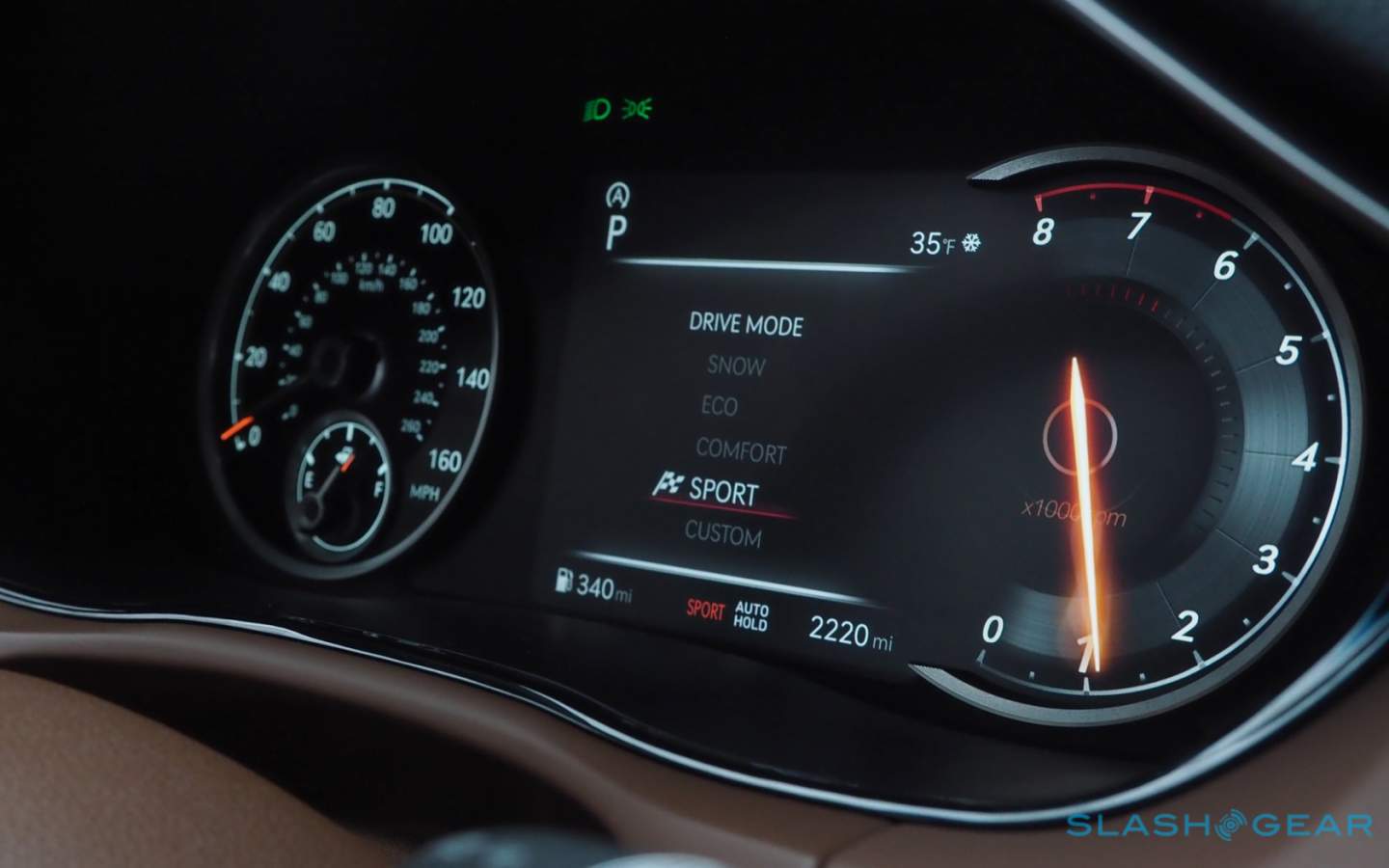2022 Genesis GV70 2.5T Review: Things Just Got Interesting
- Engaging styling
- 2.5T engine is plenty powerful
- High levels of standard equipment
- Competitively priced
- No electrified drivetrain option
- Headroom is good but not outstanding
- Some technology head-scratchers
Genesis may have been late to the SUV party, but the GV80 showed it wasn't coming unprepared. Now, it's the turn of the 2022 Genesis GV70 to demonstrate the larger model was no fluke, and that Hyundai's luxury arm really does have the magic touch when it comes to SUVs – compact or otherwise. While the top-spec trims are unsurprisingly polished, there are a few surprises in store for this mid-range GV70 2.5T AWD Advanced.
Pricing for the GV70 kicks off at $41,500 (plus $1,095 destination) and spirals all the way to just north of $64k in its most lavish form. At $51,245, then, this particular example splits the difference: loading up on comfort features, without stepping up to Genesis' bigger (and thirstier) engine.
 Chris Davies / SlashGear
Chris Davies / SlashGear
I think it's fair to say that, when it comes to automotive design right now, Genesis has been punching above its weight. Whether it's sedans like the shapely G80 and handsome G90, bold and imposing SUVs like the GV80, or head-turning concepts we desperately hope will get the green-light for production, Genesis' design team has nailed the balance between striking and outlandish. That's not something you can say for every other player in the luxury segment.
For the most part, the 2022 GV70 achieves the same polish. The front bears the now-familiar shield shaped grille, flanked by the double-whisker headlights that we've come to associate with the brand. A more arcing roofline lends some extra, almost fastback taper to the silhouette, with a strong shoulder line that drops dramatically toward the rear three-quarters. Never afraid of avant-garde wheels, Genesis has a few different versions for the GV70 depending on size and trim: these fractal-esque multispokes are clever and distinctive, with the Advanced trim getting 19-inch rims. Standard trim gets 18-inch wheels, while Sport Prestige kicks things up to a possibly-too-large 21-inches.
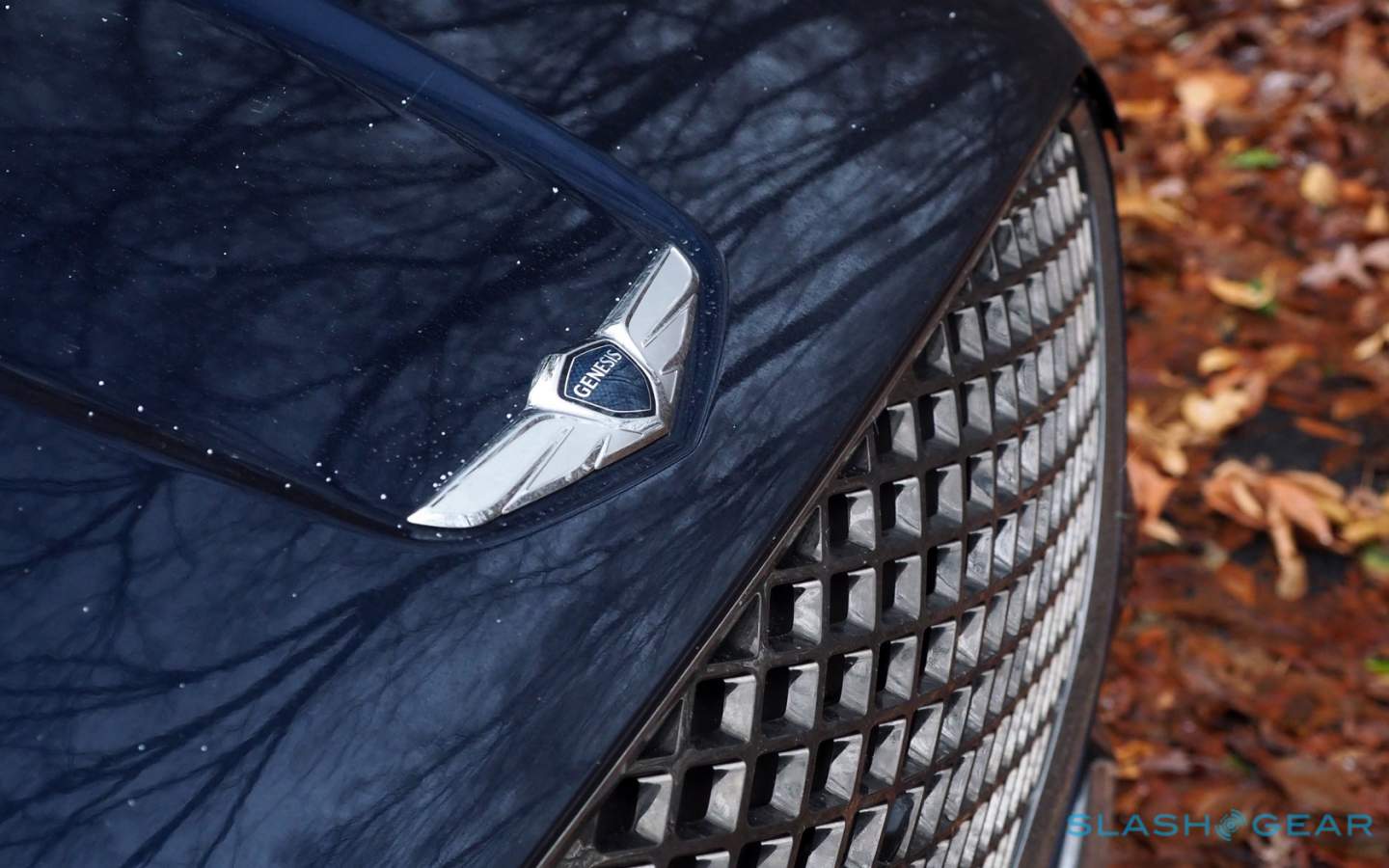 Chris Davies / SlashGear
Chris Davies / SlashGear
If there's a weak spot, it might be the rear. Something about the way the chrome trim drops precipitously after the C-pillar and the general flatness of the taillight surfacing, together with the slightly-too-tall lower valance. It's not bad, it just takes a little more getting used to.
Unlike with the GV80, where Genesis at least gave a nod to three-rows (albeit only on one trim), the GV70 is resolutely a five-seater inside. The cabin features many of the same design elements that we've seen used before, but feels a little more playful and youthful – just like, maybe, Genesis' target audience – in how they're implemented.
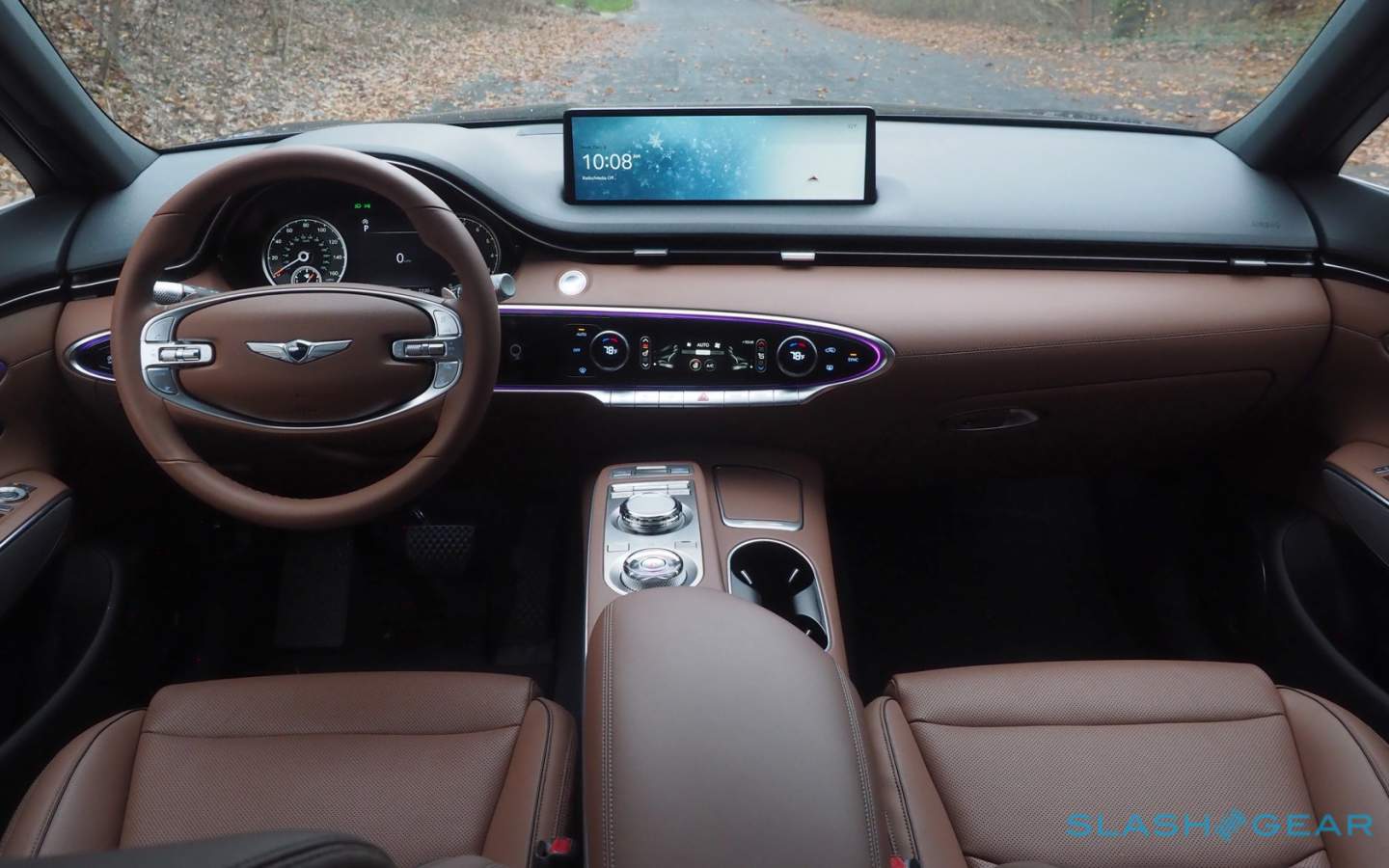 Chris Davies / SlashGear
Chris Davies / SlashGear
Swathes of soft-touch material span the dashboard, intersected with a scoop of metal and glossy touchscreen for the HVAC controls. A sizable crystal drive mode dial sits in the center console, behind a similarly-lavish jog wheel for the infotainment system. That spins, yes, but its smooth, concave surface is a trackpad as well. Or, you can simply reach out and tap the wide, low, 14.5-inch touchscreen which is generously standard on all trims.
Genesis' latest software is clean and easily navigated, no matter how you interact with it. There's Android Auto and Apple CarPlay – both wired, not wireless – too, if you'd rather use smartphone projection. Tucked away behind the steering wheel is a fingerprint sensor, which can be used to start the GV70 without the key present. You'll still need your phone, though, since that's used to unlock the doors.
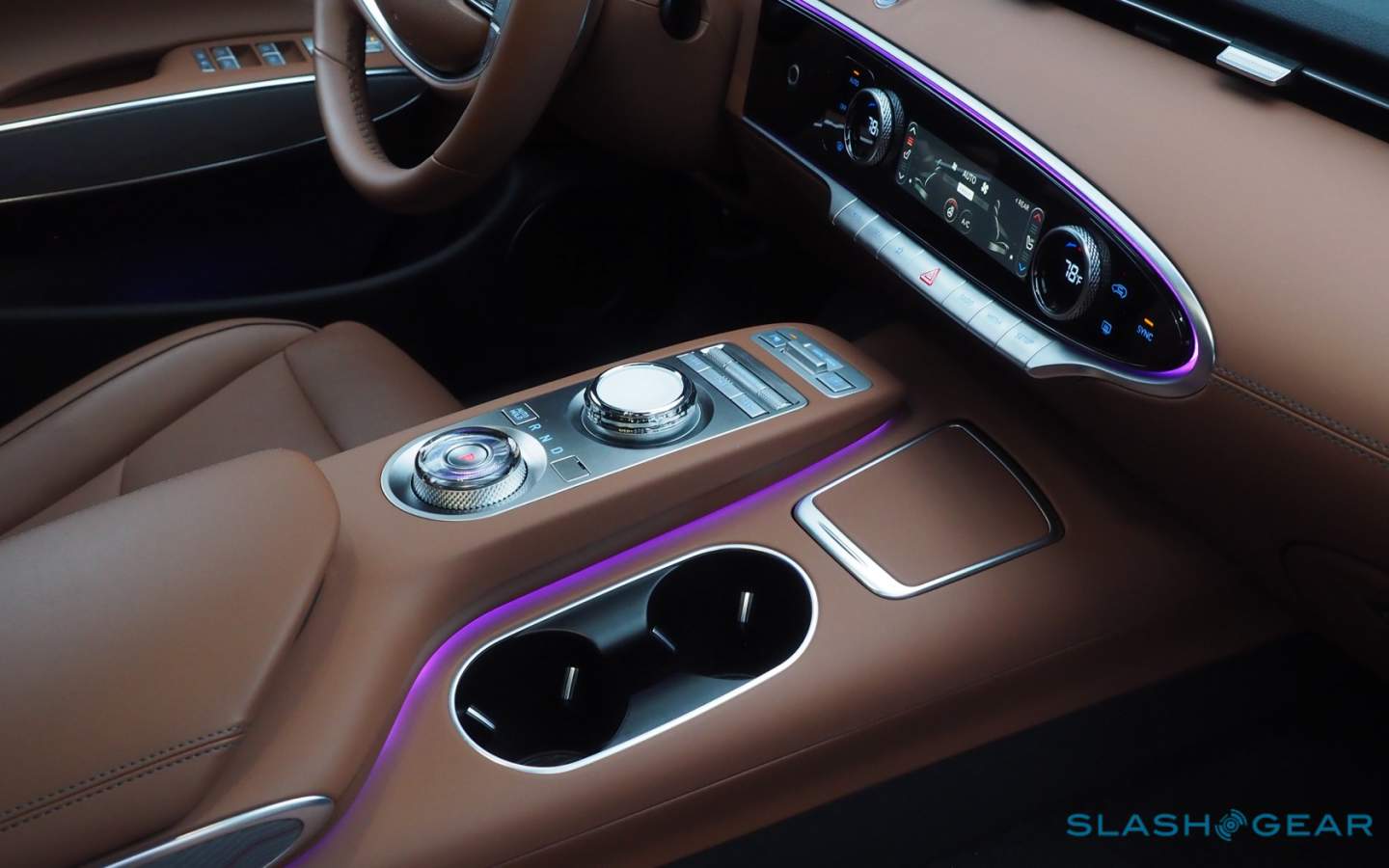 Chris Davies / SlashGear
Chris Davies / SlashGear
For the driver, there's an 8-inch display in the cluster, alongside an analog speedo. No 3D option here, nor a fully-digital layout; that's withheld for the top-spec 3.5T Sport Prestige model, though I didn't really miss it. Sadly only that trim gets the head-up display, too. Wireless phone charging and heated front seats with 12-way power driver's adjustment are standard across the board; Select trim and above have a panoramic sunroof and 18-speaker Lexicon audio.
Advanced trim and above have leather seats, a 360-degree camera, blind spot view monitor (which pipes a live camera feed from the side of the car to the instrument cluster when you flip on the turn-signal), along with parking collision-avoidance assist alongside a brace of standard safety tech. That includes Smart Cruise Control with Stop & Go; Genesis' surprisingly capable Highway Driving Assist II lane-keeping assistance tech is offered on higher-spec cars. It's one of the better systems out there, though it does require hands-on-wheel reassurance.
That's great for the highway, but the rest of the time you might be more keen to pilot things entirely by yourself. Genesis offers two engines, a turbocharged 2.5-liter four-cylinder with 300 horsepower and 311 lb-ft of torque, and a 3.5-liter twin-turbo V6 with 375 horsepower and 391 lb-ft. Either way, all-wheel drive is standard, as is an eight-speed automatic transmission.
Genesis' four-cylinder engine may feel a little like a compromise in its bigger cars, but it's just the right degree of punchiness in the GV70. It's responsive and eager, even when you're not in Sport mode, which tweaks the adaptive suspension along with the transmission mapping and other settings to make things more purposeful. All of the engine power can be routed to the rear wheels, if traction and driving style demands it, and Sport Prestige models throw in a limited-slip rear differential which can push that between the left and right wheels specifically.
The trick diff's torque vectoring would be good fun to play with, but you don't need it to enjoy yourself in the GV70. Just like the smaller engine is plenty urgent enough, the adaptive settings let you go from soft through to body roll-squashing firmness. Sure, a sports sedan like the G70 will be even more engaging with its lower center of gravity, but it's generally difficult to criticize Genesis' setup here. 22 mpg in the city and 28 mpg on the highway are solid for the segment, but the absence of even a mild hybrid, much less a plug-in hybrid or BEV, continues to heap shame upon Genesis' product planning decisions.
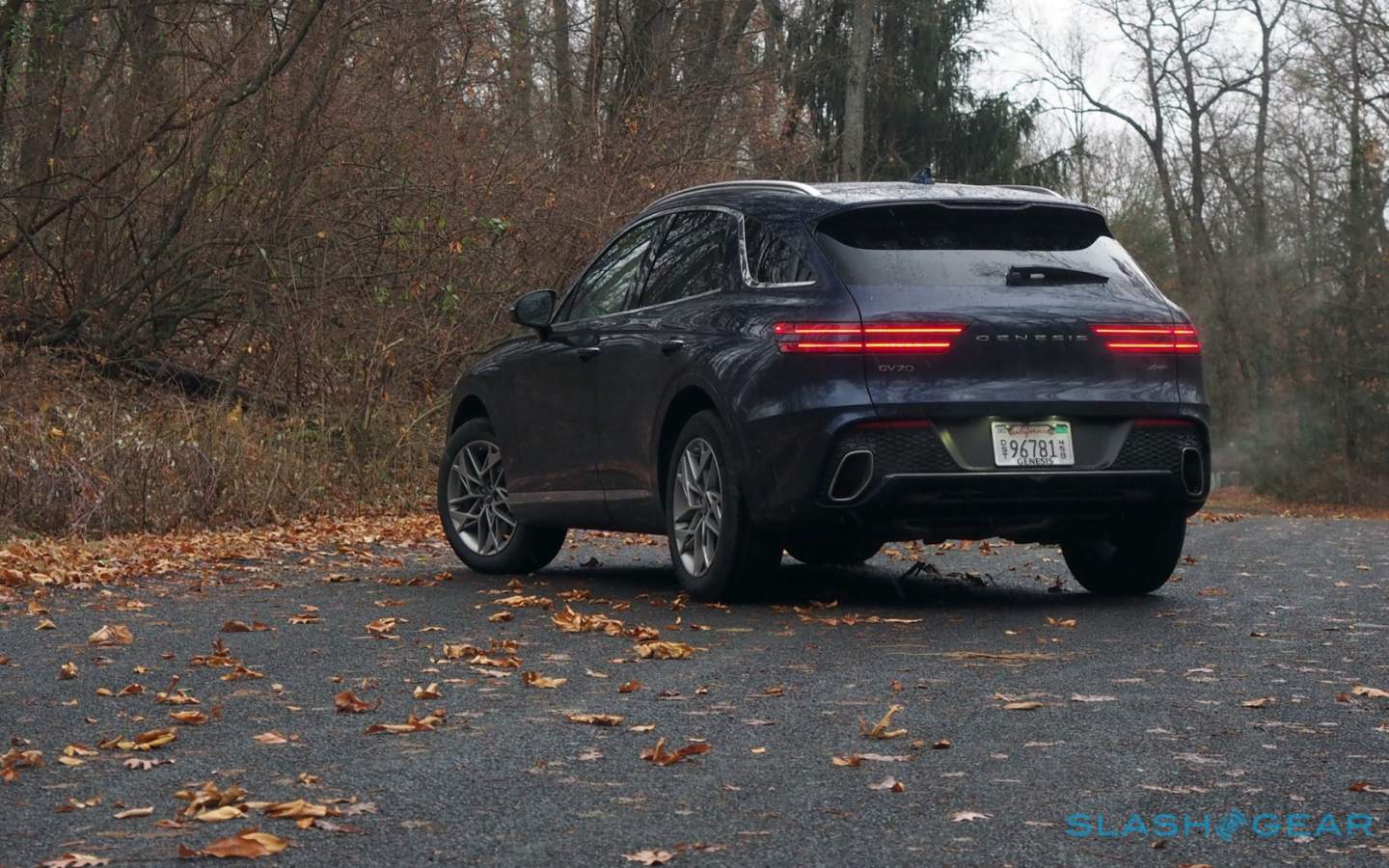 Chris Davies / SlashGear
Chris Davies / SlashGear
More practical is the trunk, which will hold 28.9 cu-ft with the rear seats up, or 56.9 cu-ft with them down. Despite the roofline, headroom is decent – though not plentiful – for the first and second row. What makes it all feel more special is Genesis' use of lighting and non-traditional materials, which vary by trim level.
2022 Genesis GV70 Verdict
It's clear that the GV80 was no one-off success for Genesis. Though smaller, and more affordable, the GV70 comes well-equipped not only in performance and technology, but with the personality that has come to distinguish the South Korean automaker's cars. That starts with head-turning styling, sure, but it takes care of longevity too with a well-designed and comfortable cabin, playful but still functional features, and a high level of standard equipment.
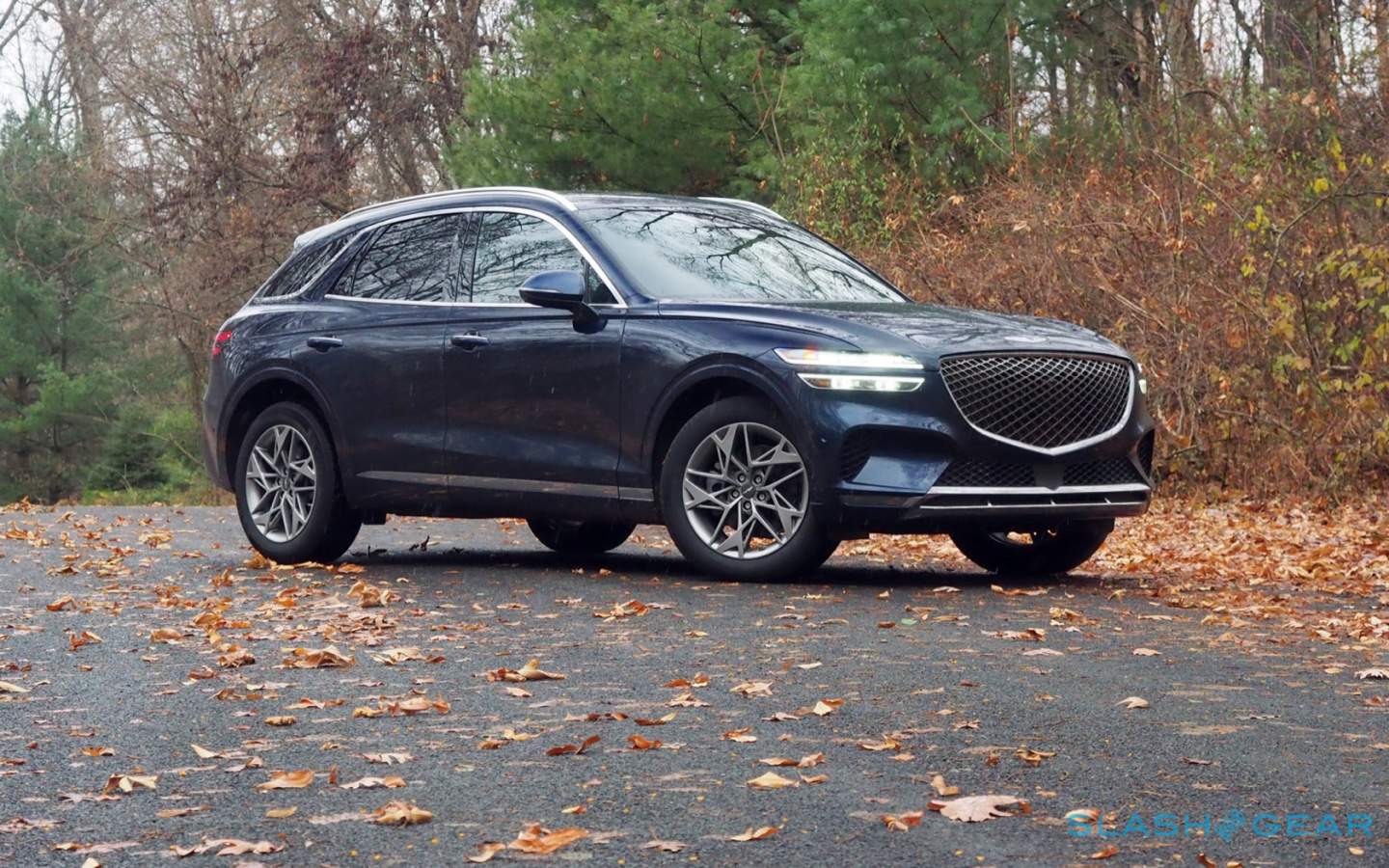 Chris Davies / SlashGear
Chris Davies / SlashGear
If there's a glaring omission, it's that Genesis feels laggardly in integrating electrification. For all the gadgetry in the interior, it's lacking under the hood, and the first EV SUV from the company can't come soon enough.
Look beyond that, though, and there's more than enough reason here for the mainstays in the high-end compact SUV segment to start getting worried. Memorable in all the best ways, the GV70 doesn't demand especially deep pockets in order to experience its charms. That alone feels like a game-changer in a category hardly known for being price sensitive.

